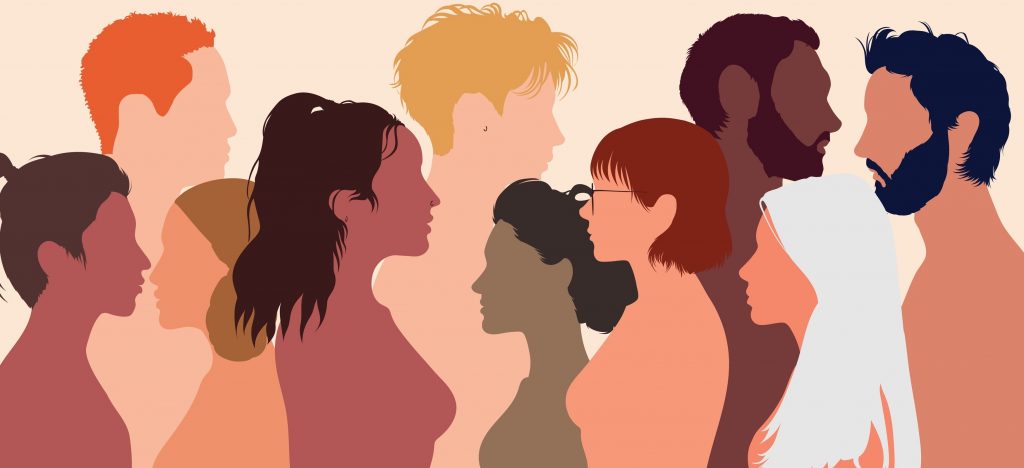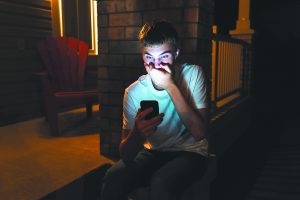Luke Johns recently told his girlfriend that he wanted to talk about the trouble with their sex life. “Is it me?” she asked.
Nope. It turned out it was his lack of sleep.
Like many these days, he’s been having difficulty getting enough sleep. This has left him groggy during the day and struggling to stay alert during sex at night.
“I want to be intimate,” says Johns, age 45, a psychologist in Torrington, Wyo. “But I’m just always so exhausted.”
How’s your sleep situation working out?
About 50 million to 70 million Americans have sleep disorders, according to the National Heart, Lung and Blood Institute. One in three adults don’t regularly get the recommended amount of uninterrupted sleep they need, the institute says. Chronic sleep deprivation—poor quality as well as quantity—has been linked to health problems such as diabetes, high blood pressure and obesity, and cognitive issues such as reduced attention and reaction time.
A subject that’s less discussed: Lack of sleep can also tank your sex life.
It’s associated with reduced libido, orgasm difficulties and general lack of sexual satisfaction, research shows. When we’re chronically tired, we don’t have the energy to get aroused or to satisfy our partner. Plus we’re cranky. We may not even want sex at all.
“When you’re exhausted and you see a pillow, you’re not thinking about great sex,” says Dr. Lauren Streicher , a professor of obstetrics and gynecology at Northwestern University’s medical school and senior research fellow at the Kinsey Institute at Indiana University.
More frustrated, more reactive
Poor sleep reduces testosterone levels in men and estrogen levels in women , both of which are linked to sex drive. Our stress hormones spike, leaving us too strung out to feel desire.
In our heads, the result is heightened irritability, anxiety and depression, and lowered energy and motivation, science shows. We’re more easily frustrated and more reactive and prone to conflict.
“These are all major sex killers,” says Wendy Troxel , a senior behavioral scientist at Rand and author of a book on couples and sleep. We’re less able to read our partner’s emotions and more likely to withdraw, she says.
Now, some good news: Better sleep leads to more, and better, sex, Troxel says. According to one study in the Journal of Sexual Medicine , each additional hour a woman sleeps corresponds to a 14% increase in sexual activity the next day.
Another recent study showed that orgasms may even help you sleep, especially if you have them during sex with a partner. “Good sex can lead to good sleep,” says Candice Hargons , a counseling psychologist and associate professor at Emory University’s school of public health, whose work focuses on sexual wellness.
Reporting this story, I talked to people—too shy to be quoted by name—who blamed exhaustion for sexual performance issues, falling asleep during sex and bickering with their partner while in the act. One woman told me she shouted “Hurry up, I’m TIRED!” during sex recently.
Johns has had trouble sleeping for years. Most nights, he says he’s lucky to get five hours of decent rest, which leaves him sapped of energy for sex. He often wakes at 4 a.m. and can’t get back to sleep, so he gets out of bed and starts his day.
His girlfriend, Nicole McIntosh , says she’s stopped initiating sex because he looks so wiped out.
“I didn’t want to push him,” says McIntosh, 50, a school counselor.
Johns says that prescription sleeping pills have helped, and recently his doctor added a medicine for erectile dysfunction. Now, on nights that the couple wants to be intimate, Johns takes that pill, then his sleeping pill.
“Sex isn’t spontaneous,” he says. “But at least I can make sure that I am able.”
What you can do
If a lack of sleep is stifling your sex life, here’s some advice from doctors, therapists and sleep experts.
Don’t steal from sleep. Many couples—especially those with young kids—fit sex in whenever they can, which often means sacrificing sleep for intimacy. Steal time from something else, such as Netflix or social media, sleep specialists say. And try getting intimate earlier.
“If there is an activity you really love doing, why would you leave it for the last thing of the day?” says Dr. Alex Dimitriu , a psychiatrist and sleep medicine specialist in Menlo Park, Calif.
Try separate beds. This may help you sleep better . Sleeping alone means there’s no one next to you snoring, hogging the covers or watching TV while you’re trying to drift off.
Consider making intimacy a part of your bedtime ritual, suggests Rand’s Troxel. Pick a bed, start early, then go your separate ways.
Have a wake-up rule. Tempting though it can be, nudging your partner awake when you feel frisky can backfire, exacerbating sleep and relationship problems both, sex therapists say.
Talk to your partner about if—and when—you’re willing to be woken up, suggests Emory’s Hargons. And be understanding if your partner chooses sleep. In the long run, that’s to your benefit, she says.
Lower the bar. Sleepy sex can be relaxing. Touch calms our nervous system. But keep expectations in check. You don’t have to swing from the chandelier or even go all the way to reap the benefits, says Sari Cooper , a certified sex therapist in New York.
“If you cuddle and touch, even without orgasm, that is great,” she says. “You’re bonding—and you’re more likely to go to sleep.”
Write to Elizabeth Bernstein at Elizabeth.Bernstein@wsj.com












